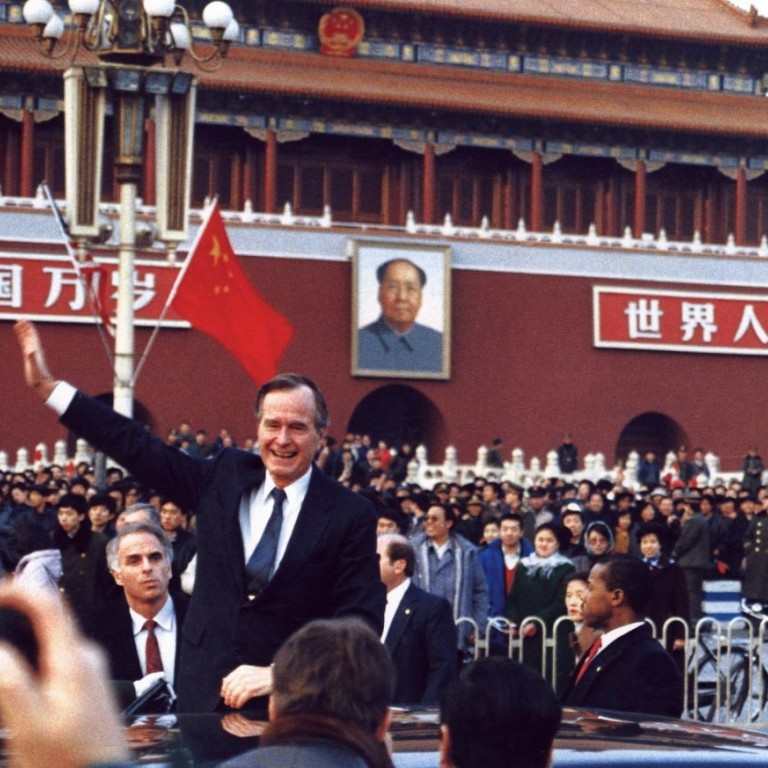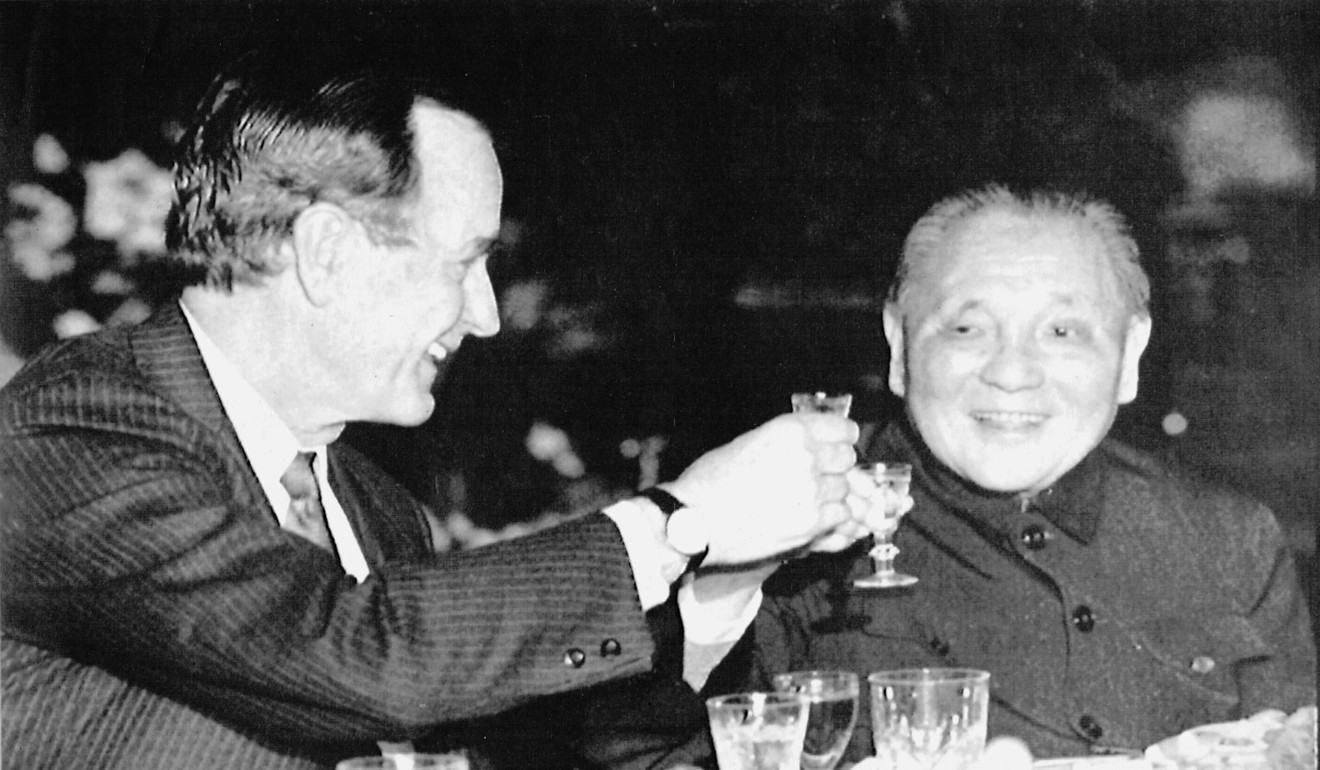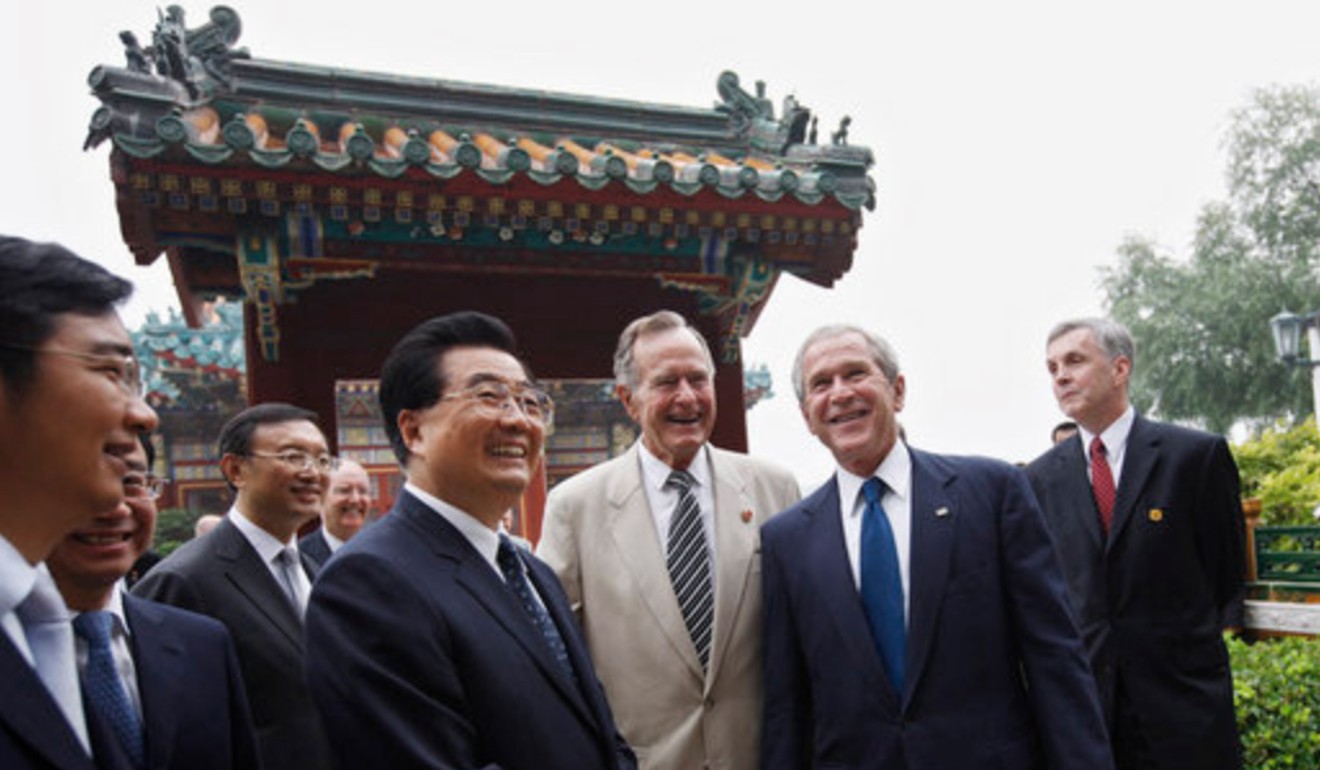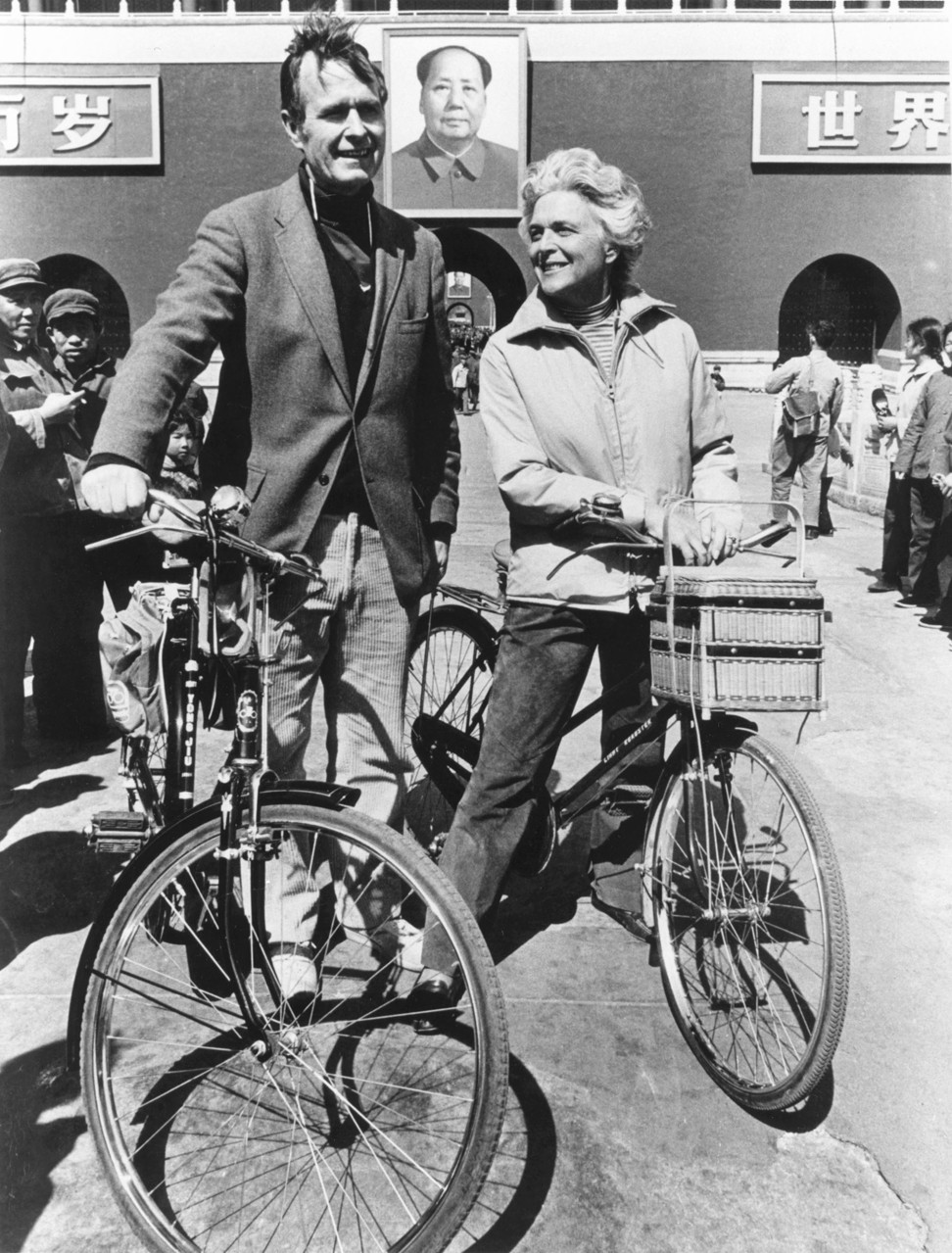
George H. W. Bush – the foreign policy realist and ‘old friend’ of China
- Former US president remembered in Beijing for helping stop ties with Washington from going off the rails, observers say
- The trust and personal ties he spent years building often proved invaluable in bilateral relations
George H. W. Bush was a one-term president but he played a pivotal role in Washington’s foreign policy towards Beijing for decades and remains one of the best-known American names in China.
A second world war veteran and a foreign policy realist, the 41st American president – like other towering figures such as Richard Nixon and Ronald Reagan – recognised the geopolitical importance of communist China.
Bush, who died on Saturday, is best remembered in China for his 14-month stint as America’s de facto ambassador to Beijing in the 1970s and his efforts to steer the relations through the aftermath of the bloody Tiananmen Square crackdown in June 1989.
Despite his mixed reputation in the United States, he is deeply respected in China as “an old friend”.
The title, according to diplomatic analysts, is usually reserved for other communist leaders or sympathisers, or a select number of world dignitaries – such as former diplomat Henry Kissinger and International Olympic Committee chief Juan Antonio Samaranch – for outstanding contributions to Beijing’s often tumultuous relations with the outside world.
Trump to Dalai Lama, how world paid tribute to George H.W. Bush
Bush’s legacy in China, they said, stood in sharp contrast to that of the incumbent, US President Donald Trump, whose disdain for consensus-based multilateral cooperation and hardline stand on Beijing over trade and a slew of geopolitical differences had plunged the bilateral ties to the lowest point in 40 years.
Bush’s death, coming on the eve of a much-anticipated summit between Trump and President Xi Jinping on the sidelines of the Group of 20 gathering in Argentina, was a big loss for people who believed in engagement and friendly relations between the two powers, according to Tao Wenzhao from the Chinese Academy of Social Sciences.
Amid an escalating trade war and what some say is the start of a new cold war, the meeting is widely seen as a make-or-break moment for bilateral ties.
“Bush will be sorely missed as a leader whose vision and confidence in a strong US-China relationship helped keep our relations from going off the rails, especially during difficult, testy times,” Tao said. “We really wish American officials and people could ponder the legacy of president Bush and learn from the lessons in our relations over the years.”
Pang Zhongying, another Beijing-based international relations expert, also spoke highly of Bush, describing him as a key diplomatic figure in the normalisation period.
“He left a lasting imprint on US-China ties with his tremendous job in forging closer relations since the early 1970s,” he said.
Tasked with helping break the ice with Beijing after Nixon’s historic China visit in 1972, Bush served as the head of the US liaison office in Beijing between 1974 and 1975, when he forged personal ties with Chinese leaders and diplomats, including late paramount leader Deng Xiaoping.
Often seen riding a bike in the Chinese capital with his wife, Barbara, Bush was criticised, including by Kissinger, as being too “soft” for power diplomacy and statecraft.
However, the trust and personal ties he spent years building often proved invaluable in bilateral relations.
Former US president George HW Bush dies at the age of 94
As Reagan’s vice-president, Bush was assigned to Beijing twice to deal with the most disruptive issue of Taiwan, which has often been a game changer in the relationship.
According to Tao, Bush’s May 1982 trip was of particular importance as months-long negotiations on a historical joint statement by Beijing and Washington on arms sales to the self-governing island were largely stalled.
“Although much of the details remains unclear, Bush’s meeting with top Chinese leaders and especially Deng, proved to be fruitful and paved the way for the eventual signing of the August 17 communique,” he said, referring to the third of three cornerstone bilateral statements for the normalisation of Sino-US relations.
On the second trip in 1985, Bush famously played tennis with vice-premier Wan Li, and also said that “the sky’s the limit, the door’s wide open” in terms of relations with China.

Showing the importance of the relationship, Bush made an official visit to China in February 1989, just a month after he was sworn in as president.
Within months of the Tiananmen crackdown, he sanctioned a private visit by Nixon to China and sent his national security adviser Brent Scowcroft twice to Beijing, including on a secret mission in July.
It was one of the most controversial decisions of his presidency and it was criticised heavily by members of the US Congress as kowtowing to China. But Bush defended the secret diplomatic mission, which was revealed only weeks later, as a useful fact-finding trip.
One of Xi’s top advisers on US affairs, Yang Jiechi, a former Chinese foreign minister and top envoy to the US, is known as a friend of the Bush family and famously nicknamed by the late president as “Tiger” Yang.
Their personal ties date back to 1977 when Yang, then a junior interpreter, accompanied Bush on a trip to Tibet.
The height of his relations with China came during the presidency of his son, George W. Bush, when then Chinese president Hu Jintao rolled out the red carpet for the Bush family.
“Hu invited more than 30 members of the Bush family, including George H. W. Bush and his son, to the opening ceremony of the Beijing Olympics and a dinner in Zhongnanhai,” Tao said, referring to the walled compound off-limits to all but the top Chinese leaders.

Unfortunately, that era, which saw ties warm between the former ideological rivals, may have gone for good, according to Pang.
“The era, which was marked by positive momentum and offered a favourable environment for China to open up to the outside world and focus on economic development and also helped accelerate the end of the cold war, has apparently ended,” Pang said.
“It is disheartening to see US-China relations turned almost upside down. If the summit between Xi and Trump is a success, it is possible that tensions and growing divergences can be managed for a while.
“However, few people would believe that bilateral ties can return to the good old days in the midst of the confrontational trajectory of grave challenges and growing geopolitical rivalry.”
Additional reporting by Teddy Ng


